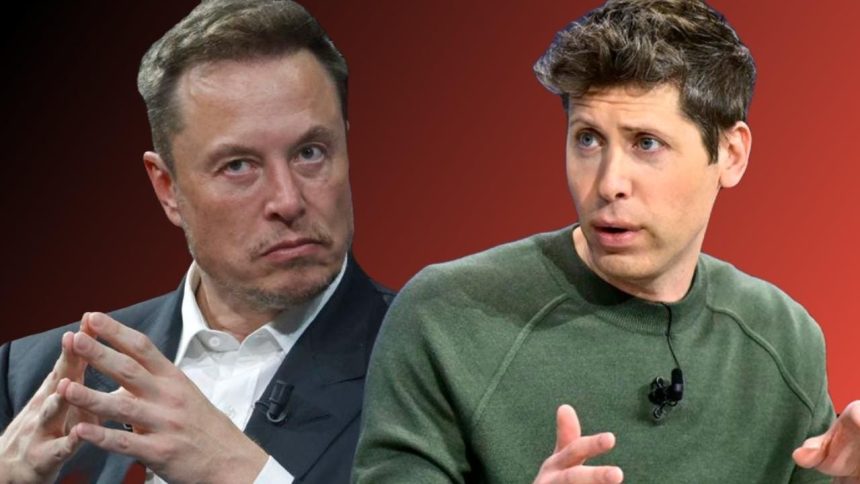The ongoing feud between Elon Musk and Sam Altman, two titans of the tech world, stems from their divergent visions for the future of artificial intelligence and a clash of personalities fueled by ambition and control. Their shared history as co-founders of OpenAI, initially envisioned as a non-profit dedicated to the responsible development of AI, has ironically become the battleground for their increasingly public and acrimonious dispute. Musk’s departure from OpenAI in 2018, driven by concerns over the organization’s shift towards a for-profit model and its close ties with Microsoft, laid the foundation for the current conflict. This transition, which Altman defends as necessary for achieving OpenAI’s goals, is viewed by Musk as a betrayal of their original mission and a prioritization of profit over ethical considerations.
The establishment of xAI by Musk in 2023, a direct competitor to OpenAI’s ChatGPT, has further intensified the rivalry. Musk’s criticisms of OpenAI, often framed as concerns over the existential risks posed by unchecked AI development, are perceived by Altman and others as strategically motivated attacks aimed at undermining ChatGPT’s market dominance and bolstering xAI’s position. This perception is reinforced by Musk’s focus on ChatGPT, despite the existence of other large language models (LLMs), suggesting a personal stake in the outcome of this competition rather than a purely altruistic concern for the future of AI. Adding another layer of complexity is Musk’s close relationship with former President Trump and his involvement in various political circles, raising concerns about potential conflicts of interest and the possibility of leveraging his influence to favor xAI in government contracts and regulatory decisions. This has led to accusations of anti-competitive behavior and the potential misuse of political power for personal gain, further escalating the tension between Musk and Altman.
The core of the disagreement lies in their contrasting approaches to AI development and leadership. Altman, as CEO of OpenAI, champions a pragmatic approach focused on rapid advancement and commercialization, arguing that this is the most effective way to ensure AI benefits humanity. He maintains that Musk’s actions are driven by a desire for control and a resentment of no longer being at the helm of OpenAI. Musk, on the other hand, positions himself as a cautious steward, warning against the potential dangers of uncontrolled AI and advocating for a more measured approach. He accuses Altman of prioritizing profit over safety and deviating from the original vision of OpenAI. This fundamental difference in philosophy, combined with their strong personalities and competitive drive, has created a seemingly irreconcilable rift.
The public nature of their feud, played out through interviews, social media, and legal battles, adds another dimension to the conflict. Both Musk and Altman have engaged in public mudslinging, with Altman labeling Musk a “bully” and Musk referring to Altman as “Swindly Sam.” This exchange of barbs, while entertaining for observers, further entrenches their positions and makes reconciliation even less likely. The lawsuits filed by Musk against OpenAI, alleging deception and breach of fiduciary duty, serve as a legal manifestation of their personal animosity and competing visions for the future of AI. While these legal proceedings unfold, the public perception of both figures and their respective companies is inevitably shaped by the ongoing drama.
The focus on ChatGPT, rather than other LLMs, can be attributed to several factors. Firstly, ChatGPT’s widespread public adoption and recognition make it a prime target for criticism and a significant competitor in the AI landscape. By attacking ChatGPT, Musk can directly challenge a dominant player and potentially gain ground for xAI. Secondly, Musk’s history with OpenAI and his co-founder status give him a personal stake in the company’s direction and success, fueling his criticisms and concerns. Finally, ChatGPT’s prominence in the public discourse surrounding AI makes it a focal point for discussions about the ethical implications and potential risks of this technology, providing Musk with a platform to voice his anxieties and promote his own vision for responsible AI development.
Ultimately, the Musk-Altman feud represents a larger conflict within the tech industry and society as a whole regarding the development and deployment of AI. It encapsulates the tension between rapid innovation and cautious regulation, between profit-driven development and ethical considerations, and between centralized control and decentralized access. The outcome of this conflict will have significant implications for the future of AI, shaping the trajectory of technological advancement and influencing the societal impact of this transformative technology. As the battle between these two powerful figures continues, the world watches with bated breath, recognizing the profound implications of their struggle for dominance in the realm of artificial intelligence.



